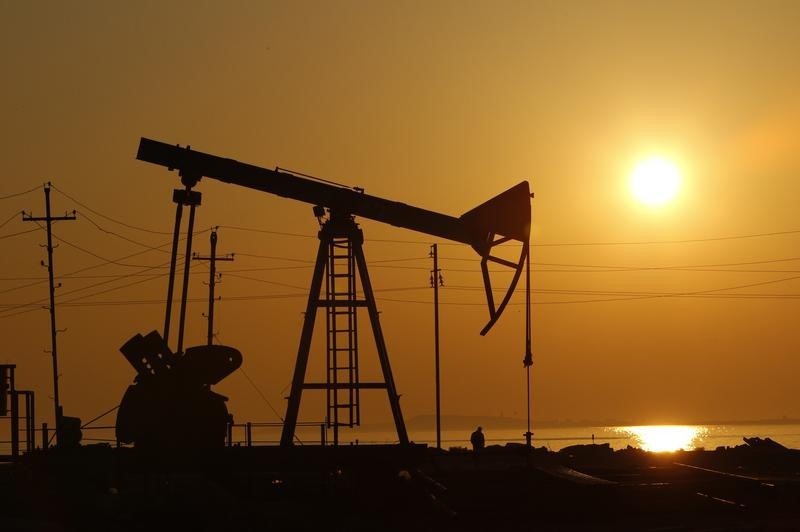By Duncan Miriri
NAIROBI, Nov 10 (Reuters) - Kenya's government has proposed in a draft bill to give 30 percent of prospective oil revenue to the community where the resource was discovered, climbing down from its earlier proposal to cap the amount.
Tullow Oil TLW.L discovered commercially viable quantities of crude in the far northern county of Turkana in 2012. Full production of the oil, estimated at 750 million barrels, is expected in 2021.
The government had earlier said the revenue would be capped at 22 billion shillings ($213 million) for the local county government and 3 billion shillings for the community, citing concerns about absorption capacity of the funds.
The proposal had angered local officials and the governor of Turkana, Josphat Nanok, traded harsh words with President Uhuru Kenyatta over the issue when Kenyatta visited Turkana in March.
Nanok wanted the government to give 20 percent of the revenue to the local authority and 10 percent to the local community.
In an amended petroleum bill submitted to parliament on Thursday, the government adopted the revenue sharing formula proposed by Nanok, who was not immediately available for comment.
Nanok told Kenyatta he would not win local votes in the presidential election if he did review the agreement. Kenya held a presidential election in August, but the Supreme Court nullified it and ordered a rerun on Oct. 26.
Kenyatta won with 98 percent of the vote after his chief rival Raila Odinga boycotted the vote because he said it would not be fair.
"The changes have been made under political pressure," said George Wachira, the managing director of Petroleum Focus, a Nairobi consultancy.
"Ideally the allocation should be indexed to a county's capacity to spend, which will obviously increase with time."
Kenya is planning to construct a $2.1 billion pipeline to evacuate the crude through a proposed port in Lamu. It has signed an agreement with Tullow and its exploration partner Africa Oil AOI.TO and A.P. Moller-Maersk MAERSKb.CO .
The discovery of the crude fuelled fears of corruption in a country where the government has been repeatedly rocked by financial scandals.
"Kenya should guard against leakage and wastage of oil revenues at all levels - national, county, and local communities," Wachira said. ($1 = 103.4700 Kenyan shillings) (Editing by Katharine Houreld and Ed Osmond)
